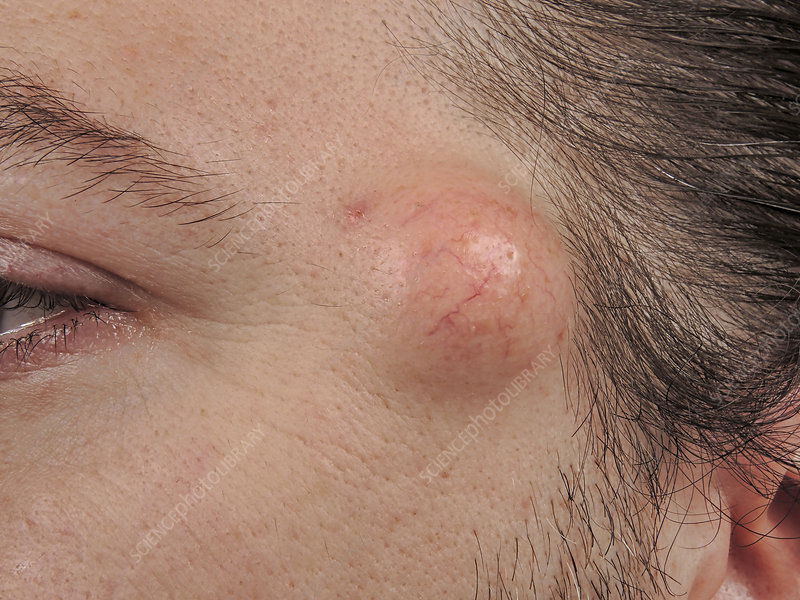Cyst

Symptoms
Epidermoid cyst signs and symptoms include:
- A small, round bump under the skin, usually on the face, neck or trunk
- A tiny blackhead plugging the central opening of the cyst
- A thick, yellow, smelly material that sometimes drains from the cyst
- Redness, swelling and tenderness in the area, if inflamed or infected
When to see a doctor
Most epidermoid cysts don't cause problems or need treatment. See your doctor if you have one or more that:
- Grows rapidly
- Ruptures or becomes painful or infected
- Occurs in a spot that's constantly irritated
- Bothers you for cosmetic reasons
- Is in an unusual location, such as a finger and toe
Causes
The surface of your skin (epidermis) is made up of a thin, protective layer of cells that your body continuously sheds. Most epidermoid cysts form when these cells move deeper into your skin and multiply rather than slough off. Sometimes the cysts form due to irritation or injury of the skin or the most superficial portion of a hair follicle.
The epidermal cells form the walls of the cyst and then secrete the protein keratin into the interior. The keratin is the thick, yellow substance that sometimes drains from the cyst. This abnormal growth of cells may be due to a damaged hair follicle or oil gland in your skin.
Many people refer to epidermoid cysts as sebaceous cysts, but they're different. True sebaceous cysts are less common. They arise from the glands that secrete oily matter that lubricates hair and skin (sebaceous glands).
Risk factors
Nearly anyone can develop one or more epidermoid cysts, but these factors make you more susceptible:
- Being past puberty
- Having certain rare genetic disorders
- Injuring the skin
Complications
Potential complications of epidermoid cysts include:
- Inflammation. An epidermoid cyst can become tender and swollen, even if it's not infected. An inflamed cyst is difficult to remove. Your doctor is likely to postpone removing it until the inflammation subsides.
- Rupture. A ruptured cyst often leads to a boil-like infection that requires prompt treatment.
- Infection. Cysts can become infected and painful (abscessed).
- Skin cancer. In very rare cases, epidermoid cysts can lead to skin cancer.


